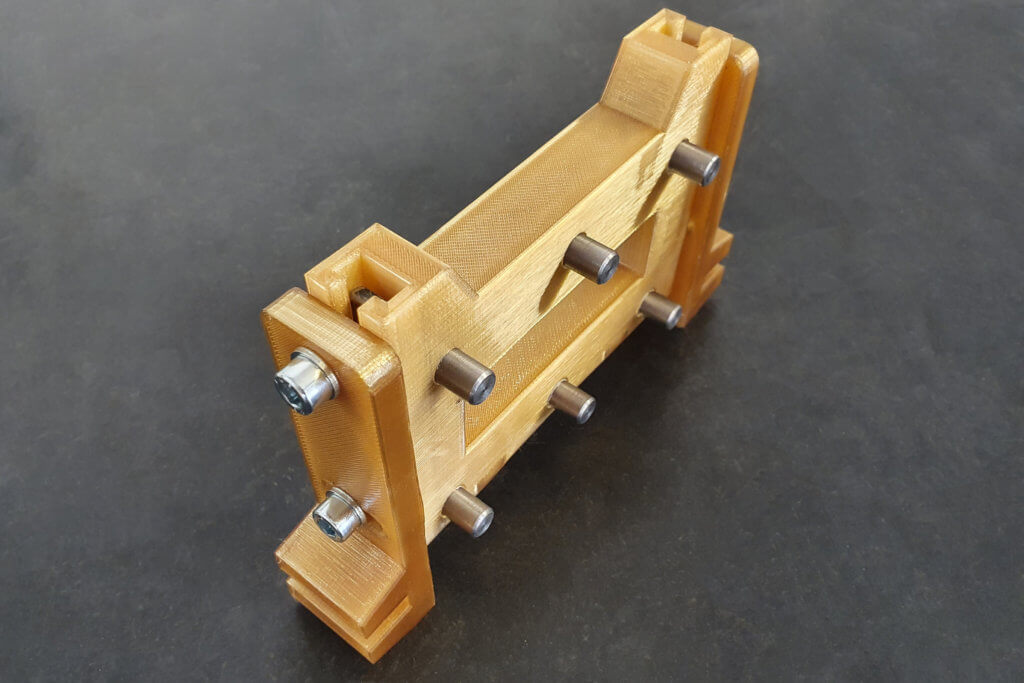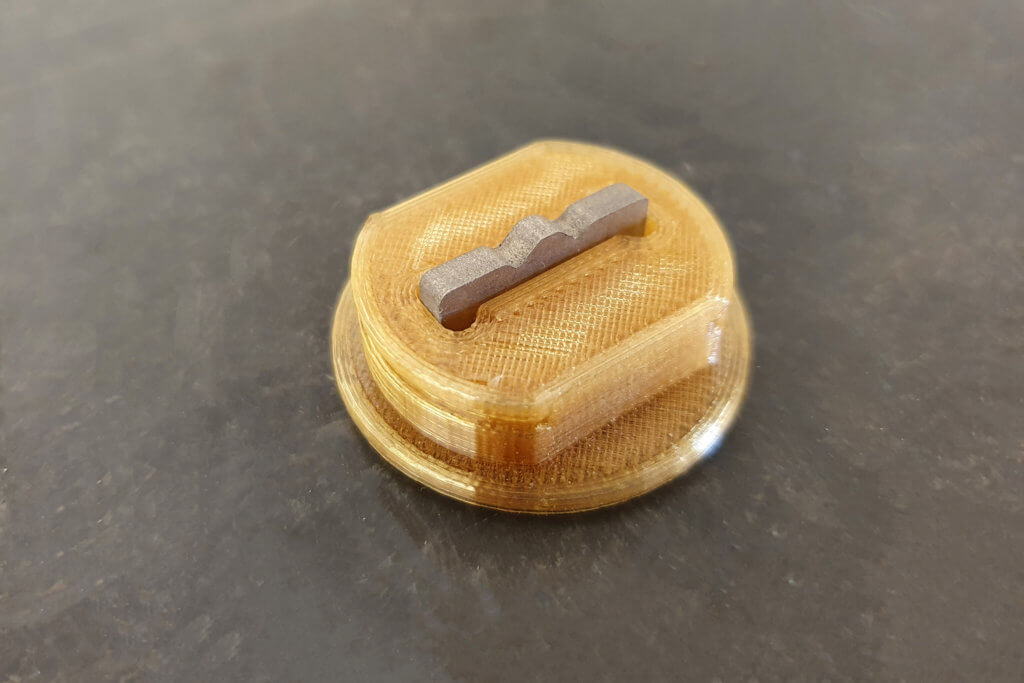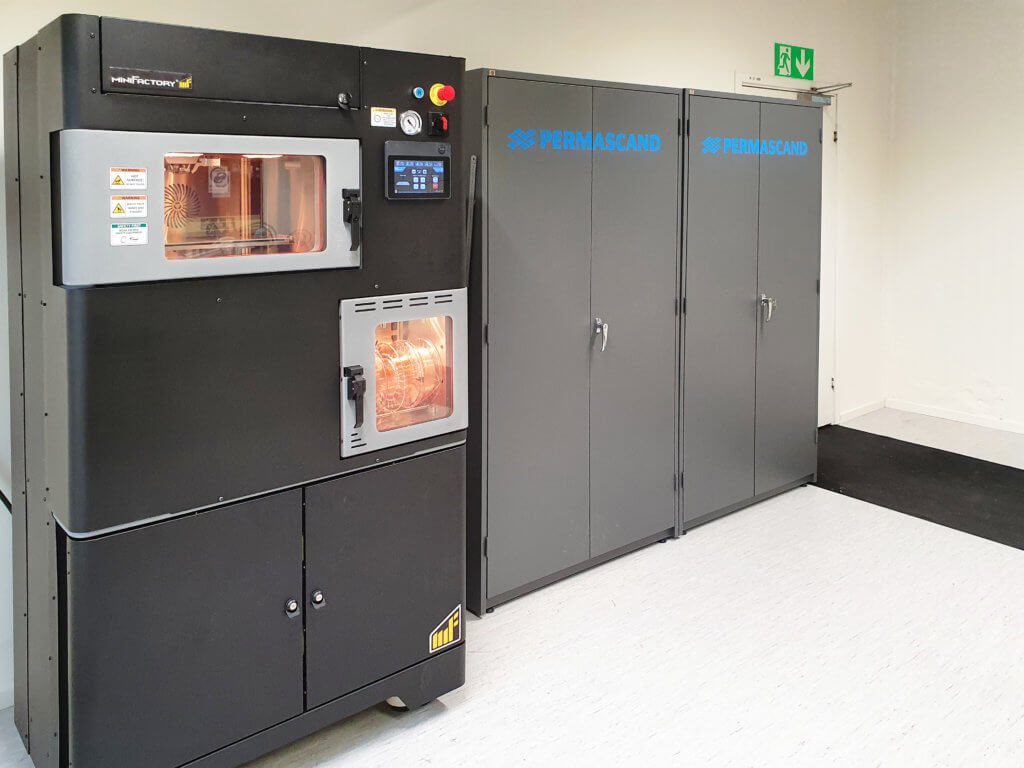Challenging manufacturing processes also place high demands on the materials involved. 3D printing of special polymers has enabled significant cost savings through a flexible manufacturing method for the Swedish company Permascand.
Permascand is a technology-driven manufacturer of world-leading electrochemical solutions – based on proprietary catalytic coatings – for clean tech applications. With a customer-centric focus, the company has supplied electrodes and aftermarket services for a variety of industries for more than 50 years.
Different manufacturing processes often call for customised tools, fasteners and other aids, and 3D printing has historically proven its cost-effectiveness to support such processes. But when manufacturing processes involve strong chemicals and high temperatures, or when excellent electrical insulation is required, very few materials prove suitable for the application. That's when special polymers – which last where other materials struggle – come to the rescue.

Permascand's Product Designer Kalle Leander explains why they decided upon a minFactory Ultra 3D Printer, the type of parts produced by the unit and the benefits enjoyed during the first year of use.
"Our production includes, for example, an etching plant that requires plastic parts with high chemical resistance. Consequently, the list of suitable materials is fairly short. Previously, we manufactured plastic parts by machining PTFE or PVDF materials, but we have switched to PPSU material with 3D printing. This material offers excellent chemical resistance and is therefore suitable for the relevant application" – says Leander.
As the demand for chemical resistance changes to high temperatures and electrical insulation, the miniFactory 3D printer can easily switch to a different material. And this happens in mere minutes, without hours-long changes, enabling a highly flexible production without complex production scheduing.
"Most of our products are resistance welded, which require electrically insulated tools. It is also very common for plastic parts to be exposed to relatively high temperatures. For this application, we have mainly relied on PEI 1010 (based on ULTEM1010 resin) polymer. Previously, most of these parts were machined from PF (Phenoplast)" – Leander continues.

miniFactory can reliably process dozens of different special polymers and polymer composites. Therefore, users can always choose the optimal material for every application and purpose. With 3D printing, the production of high-performance polymer parts can be up to 80% cheaper compared to traditional manufacturing methods. In turn, this drives major savings in manufacturing costs – further to a significantly faster cycle from idea to product.
Products manufactured by Permascand work with extreme chemical fluids. Therefore, special polymers have been a superior solution for all tooling parts. One widely used material is PEEK, which has been adopted by the demanding chemical industry.
Permascand's decision to invest in the miniFactory Ultra 3D printer arose from the desire to increase the team's skills and, above all, to design a cheaper and faster parts manufacturing process.
"Until now, we have sourced parts from external suppliers. We have ordered both 3D printed and machined parts. According to on our strategy, we sought to increase the design team's skills by taking design optimisation one step further. It is also a huge advantage for us that we can manufacture new tools quickly when we start production of new products. This saves us a lot of time ” – Leander explains the company's investment decision.
When asked about the utilization rate of the minFactory Ultra 3D printer and who is responsible for operating the device, Leander concludes succinctly: "Permascand's design team has the ability to operate the device and we greatly appreciate its easy "plug&play" usability when manufacturing special polymer parts. We print parts in 3D almost every day, which means that the device has a high utilization rate.”
The miniFactory Ultra was installed to Permascand premises in 2021 by 3DVerkstan. Our authorized resellers are always well-trained. As proof of this, they are certified by miniFactory for both in-depth user training and annual maintenance of the Ultra 3D printer. Thanks to this approach the same partner can offer all services throughout the lifecycle of the system. Starting from installation to user training, annual maintenance and technical support.

„*“ zeigt erforderliche Felder an